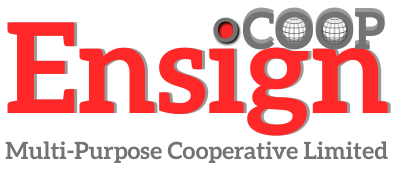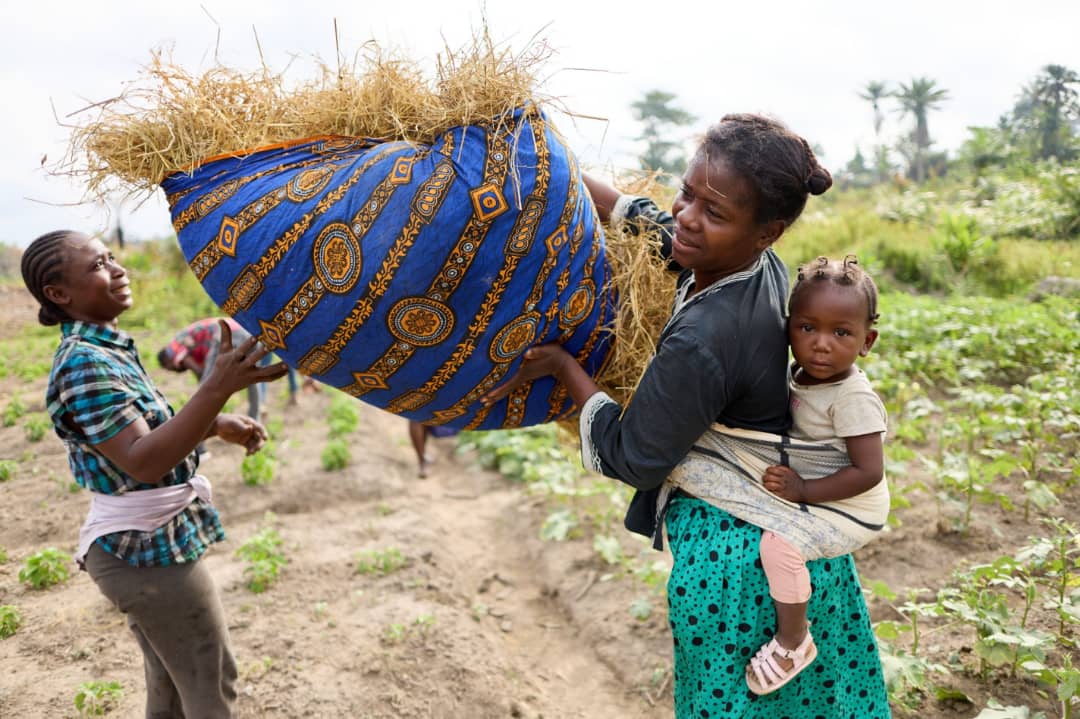The Vicious Circle of Dependency
By: Charleson Otubu
Co-Founder/Vice Chairman, Ensign Multi-Purpose Cooperative Limited UK
What is a cooperative?
According to the International Cooperative Alliance, ica.coop, “Cooperatives are people-centred enterprises jointly owned and democratically controlled by and for their members to realise their common economic, social and cultural needs and aspirations. As enterprises based on values and principles, they put fairness and equality first allowing people to create sustainable enterprises that generate long-term jobs and prosperity. Managed by producers, users or workers, cooperatives are run according to the ‘one member, one vote’ rule.”
Introduction: The Great Poverty Lie

For decades, Western charities, nonprofits, and international humanitarian organizations have flooded Africa with aid. Billions of dollars. Thousands of programs. Countless promises. Yet, the continent remains at the mercy of poverty, joblessness, weak infrastructures, and economic fragility. Isn’t it time we asked the hard question: Is charity actually helping, or is it the very reason poverty persists?
This article boldly argues what few dare to say: Charities and nonprofits are not the solution to Africa’s poverty—they are part of the problem.
The Dependency Trap: Manufactured Helplessness
Aid organizations often use well-meaning slogans like “empowerment” and “relief.” But behind these glossy campaigns lies a model designed not to empower but to sustain the vicious circle of dependence. The top-bottom approach, with outsiders dictating what Africans need, when they need it, and how they get it, strips communities of dignity, innovation, and self-reliance and in complete misalignment with developmental indices.
A scathing critique from Dambisa Moyo, author of Dead Aid, hits the nail on the head:
“Aid has been, and continues to be, an unmitigated political, economic, and humanitarian disaster for most parts of the developing world.”
(Source: Dead Aid, 2009)

The Data Doesn’t Lie: Aid Has Failed
- According to the World Bank, over $1 trillion in aid has been sent to Africa in the last 50 years, yet over 400 million people still live in extreme poverty.
- Transparency International and African Union reports show that over 25% of aid is lost to corruption.
- A Brookings Institution study revealed that many aid programs collapse within five years due to lack of local ownership and sustainability.
Aid is Addictive. Aid is Political. Aid is Broken.
Humanitarian aid is often tied to geopolitical interests. Nonprofits chase donor metrics—not impact. Their success is measured by how much they “give away,” not what’s sustainably built. The worst part? They disincentivize local governments from real reform. Why fix the roof if donors will keep patching it?
Cooperatives: The Grassroots Revolution Africa Needs
There is, however, an alternative—and it’s working. Cooperatives are community-owned, bottom-up institutions where members are both contributors and beneficiaries. Unlike charity, they’re built on dignity, self-help, and sustainability.
Why Cooperatives Succeed Where Charities Fail:
- Ownership and Participation: Cooperatives are run by members, for members.
- Profit-sharing and Economic Inclusion: Surpluses are reinvested or shared among members.
- Resilience: They are locally adapted, culturally relevant, and resistant to political manipulation.
- Skill-building and Job Creation: They create internal economies, value chains, and employment.
- Transparency and Accountability: Members have voting rights and control.
UN Approval: Cooperatives Are Officially Recognized for Sustainable Development
In its 2010 report titled “Cooperatives in Social Development”, the United Nations General Assembly states:
“Cooperatives have proven to be effective vehicles for poverty reduction, employment generation and social integration.”
(UN A/RES/64/136, 2010)
In 2012, the UN even declared the International Year of Cooperatives, recognizing their contribution to “socioeconomic development, in particular poverty reduction, employment generation and social integration.”
Proven Statistics Supporting Cooperatives:
- The International Co-operative Alliance (ICA) reports that cooperatives employ over 280 million people worldwide—10% of global employment.
- In Kenya, over 63% of the population is served by cooperatives, contributing 43% to GDP.
- Ethiopia’s cooperative movement supports over 11 million farmers in agricultural production and access to markets.
- In Nigeria, housing, thrift, and agro cooperatives are lifting communities from poverty to profit.
The Call: Reject Handouts. Embrace Ownership.
Africa must reject all forms of handouts and top-down aid systems that perpetuate dependence and foster corruption. No nation ever grew strong by begging. We must embrace cooperatives as the pathway to dignity, productivity, and long-term wealth creation.
Charity is kind. But kindness without sustainability is cruelty in disguise.
If you’re a policymaker, donor, or advocate for Africa, stop asking, “What can we give?”
Start asking, “What can they build—with ownership, pride, and permanence?”
Conclusion: The Future Is Cooperative
This is not an appeal. It is a declaration. Africa will not be saved by pity. It will rise through cooperative power, shared ownership, and collective responsibility. The age of dependency must end. The era of sustainable, African-owned prosperity has begun. Join Ensign Co-op in making a meaningful impact on the lives of African communities. Your corporate sponsorship not only supports sustainable development projects but also aligns your brand with social responsibility and positive change. Together, let’s build a brighter future for all.

